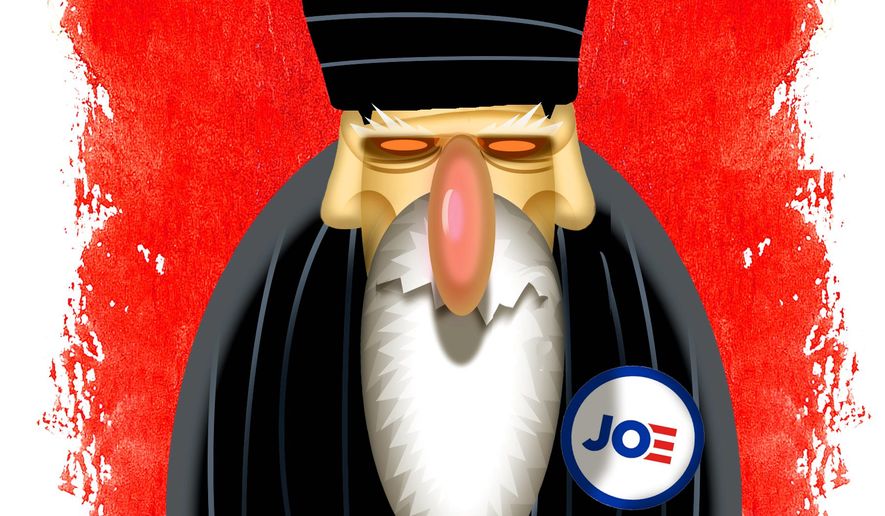OPINION:
Much has been said of former President Donald Trump, but seldom heard is that he is a poor judge of a deal. Alas, the same cannot be said of President Biden. As president, Mr. Trump in short order gauged the Iran nuclear deal as a loser for America. Nearly a year-and-a-half into his presidency, Mr. Biden still hasn’t figured out what Iran means by words that add up to “no deal.”
“In the name of God and the great nation of Iran, we will not back off a single step from our positions.” The vow by Iranian president Ebrahim Raisi last week came in response to an International Atomic Energy Agency censure for the Islamic Republic’s refusal to explain indications of nuclear activity at undeclared sites as it nears the threshold of nuclear bomb capability. Iran doubled down on resistance by shutting off IAEA surveillance cameras, all the while claiming to welcome an agreement.
The Islamic leader’s position could aptly sum up Iran’s prevailing stance during years of fruitless bargaining between U.S.-led diplomats and the regime’s intransigent delegates. Month after month of grinding talks to first create and then revive the 2015 nuclear-restricting pact, which former President Barack Obama approved and Mr. Trump nixed, have reached a stalemate in Vienna.
Representing his boss in the White House, Secretary of State Antony Blinken tsk-tsked over Iran’s threat to draw the shades on its nuclear machinations. “The only outcome of such a path will be a deepening nuclear crisis and further economic and political isolation for Iran,” he said. “We continue to press Iran to choose diplomacy and de-escalation instead.”
Mr. Biden has been chasing the same diplomatic dream of a nuclear-bereft Iran that Mr. Obama couldn’t realize. The original nuclear deal would have rewarded Iran for slow-walking its bomb-making, but it wouldn’t have stopped it. A fresh version would similarly fail.
Saudi Arabia, an oil-rich competitor of Iran’s well-acquainted with its mischief, could have spared Mr. Biden his exercise in futility. But the president has kept Saudi leadership at arm’s length, ostensibly for alleged complicity in the death of Saudi journalist Jamal Khashoggi. More probable than a sudden attack of conscience was a White House calculation that shifting long-standing U.S. favor away from the desert kingdom and toward the Islamic Republic might seal the nuclear deal.
As U.S. gasoline prices exceed $5 a gallon, Mr. Biden is bound for Riyadh next month to supplicate for more oil. The president’s hosts could reasonably offer him their own deal: Earn the extra oil by agreeing to shore up Saudi defenses against Iran’s nuclear malevolence. It is a deal Mr. Biden should strike. Doing so could stave off an energy shortage that is already tipping the U.S. economy toward recession.
Diplomacy that advances toward accord is a worthy endeavor. Sadly, Iran has shown itself to be an intractable adversary simply buying time while it readies its nukes. Mr. Trump grasped that, and so should Mr. Biden.




Please read our comment policy before commenting.